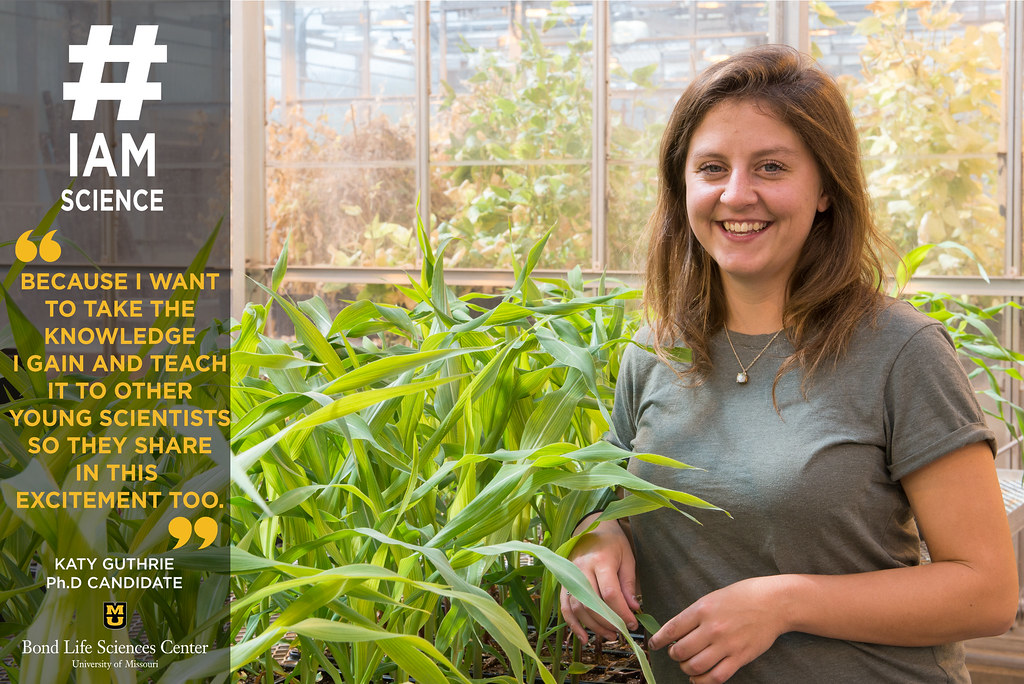
By Allison Scott | Bond LSC
“#IAmScience because I want to take the knowledge I gain and teach it to other young scientists so they share in this excitement, too.”
Katy Guthrie grew up as one of five girls. All five sisters took very different paths —one ended up in hospital management, another in marketing and advertising, one became an engineer and the other works in logistics for a start up.
But Guthrie took a different route.
Her love of science started long before she enrolled in classes at Northwest Missouri State University, but there she discovered her true love of plants. Guthrie took a required botany class, and less than a week into the course she was hooked.
“All biology students had to take zoology and botany,” said Guthrie. “I had an awesome botany professor second semester of my freshman year — her enthusiasm for the subject was captivating — and she and I developed a great relationship. It was in that class I discovered that plants are what I want to study for the rest of my life.”
As part of Dr. Paula McSteen’s lab, Guthrie studies the reproductive organs of maize and how its genes allow it to produce flower-bearing structures in pairs, while other plants only produce these structures singly.
“If you count the number of rows on a corn cob, it’s always even,” Guthrie said. “That’s because maize produces two flowers at a time instead of one. My research is essentially trying to figure out which genes are responsible for that doubling trait.”
It’s not an easy process, though, so Guthrie nurtures a unique approach to finding the solutions.
“I take ears of corn that make one flower-bearing structure and work backwards to try and find what’s missing,” Guthrie said. “If I can find that, I can assume that’s what’s making the difference.”
Although her work can be painstaking, Guthrie noted that science is all about learning from mistakes.
Ultimately, Guthrie wants to duplicate the gene that causes the doubling trait in other crops, such as rice, wheat and barley. This could have a big impact on cereal crop reproduction.
“We’re hoping to apply what we learn about maize other crops,” Guthrie said.
After finishing her studies at Mizzou, Guthrie plans to return to the classroom as a professor, preferably teaching undergraduates.
“The whole reason I decided to go to graduate school was to be able to teach,” Guthrie said. “I want people who aren’t necessarily interested in science initially to get invested in it. I also want to incorporate research into the classes I’ll teach because not every college is a research campus like Mizzou.”

